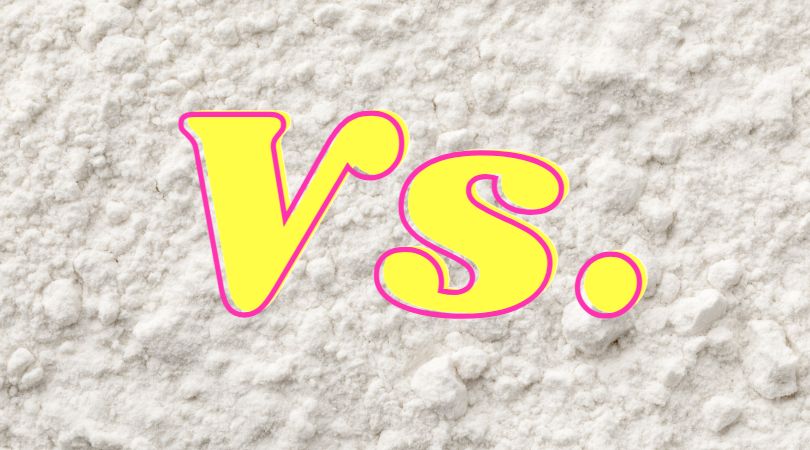Benefiber vs Metamucil
Updated for 2023
Benefiber and Metamucil stand as popular choices in the world of fiber supplements, each aiming to foster regular bowel movements and bolster digestive health. But dig a little deeper, and you'll find key differences that set them apart. While both champion digestive wellness, they diverge in their composition, effectiveness, and how they interact with your body's unique needs. Understanding these distinctions is crucial in selecting the right fiber supplement for your health journey.
Benefiber is a fiber supplement made from wheat dextrin, a type of soluble fiber. It is available in a powder form that can be mixed with water or other liquids, and it can also be added to foods. Benefiber is a tasteless and odorless powder that does not thicken when mixed with liquids. It is available over the counter and does not require a prescription.
Metamucil is a fiber supplement made from psyllium husk, a type of soluble fiber. It is available in several forms, including capsules, powders, and wafers. The powder form can be mixed with water or other liquids and is available in several flavors, including orange, pink lemonade, and mixed berry. Metamucil also contains sweeteners and flavorings, which may affect its taste. It is available over the counter and does not require a prescription.
Both Benefiber and Metamucil can help increase the amount of fiber in your diet and may be used to treat constipation or diarrhea. However, they may work differently in the body and may have different side effects. It is important to talk to your doctor or pharmacist before starting any new supplement, including fiber supplements like Benefiber or Metamucil. They can help you determine the right dosage and frequency for your needs and can also answer any questions you may have about potential interactions with other medications or medical conditions.
What is Wheat Dextrin?
Wheat dextrin is a type of soluble fiber that is derived from wheat. It is made by breaking down wheat starch through a process called hydrolysis, which involves breaking the starch molecules down into smaller units called dextrins. Wheat dextrin is a white, tasteless, and odorless powder that is often used as a food additive and dietary supplement.
Wheat dextrin is a source of dietary fiber, which is important for maintaining digestive health and preventing constipation. It is also believed to have prebiotic effects, meaning that it can support the growth of beneficial bacteria in the gut. Wheat dextrin is commonly used as a fiber supplement and is often added to foods and beverages to increase their fiber content. It is also used as a thickening agent and stabilizer in food products.
Wheat dextrin is generally considered safe and is often well-tolerated by most people. However, some people may experience digestive symptoms, such as bloating or gas, when they consume high amounts of fiber. It is important to follow the recommended dosage and to drink plenty of water when taking a fiber supplement like wheat dextrin. If you have any concerns about using wheat dextrin or other dietary supplements, it is best to talk to your healthcare provider.
What is wheat starch that wheat dextrin is made from?
Wheat starch is a type of carbohydrate that is derived from wheat. It is made by separating the starch granules from the wheat endosperm, which is the inner part of the wheat grain. Wheat starch is a white, powdery substance that is often used in food products as a thickening agent, stabilizer, or texturizing agent.
Wheat starch is commonly used in a variety of foods, including breads, pastries, noodles, and sauces. It can be used to improve the texture and mouthfeel of these products, as well as to increase their shelf life. Wheat starch is also used in non-food products, such as paper, adhesives, and textiles.
Wheat starch is a highly processed ingredient, and it does not contain the bran, germ, or other nutrients found in whole wheat grains. It is a source of simple carbohydrates and does not provide significant amounts of fiber, vitamins, or minerals. Some people with celiac disease or gluten sensitivity may need to avoid wheat starch and other wheat-based products due to their potential to cause digestive symptoms. It is important to read ingredient labels carefully and to talk to a healthcare provider if you have any concerns about wheat starch or other food ingredients.
What is Psyllium Husk?
Psyllium husk is a type of soluble fiber that is derived from the seed of the Plantago ovata plant. It is a white, tasteless, and odorless powder that is often used as a dietary supplement and as a food ingredient.
Psyllium husk is a source of dietary fiber, which is important for maintaining digestive health and preventing constipation. It is also believed to have cholesterol-lowering effects and may be used to help manage blood sugar levels in people with diabetes. Psyllium husk is commonly used as a fiber supplement and is often added to foods and beverages to increase their fiber content. It is also used as a thickening agent and stabilizer in food products.
Psyllium husk is generally considered safe and is often well-tolerated by most people. However, some people may experience digestive symptoms, such as bloating or gas, when they consume high amounts of fiber. It is important to follow the recommended dosage and to drink plenty of water when taking a fiber supplement like psyllium husk. If you have any concerns about using psyllium husk or other dietary supplements, it is best to talk to your healthcare provider.
What's the recommended daily fiber intake?
The recommended daily intake of fiber varies depending on a person's age, gender, and calorie needs. According to the Institute of Medicine, the recommended daily intake of fiber for adults is as follows:
-
Men aged 50 and younger: 38 grams per day
-
Men aged 51 and older: 30 grams per day
-
Women aged 50 and younger: 25 grams per day
-
Women aged 51 and older: 21 grams per day
For children and adolescents, the recommended daily intake of fiber varies based on age and gender. The American Academy of Pediatrics recommends the following daily fiber intake for children and adolescents:
-
Children aged 1-3 years: 19 grams per day
-
Children aged 4-8 years: 25 grams per day
-
Boys aged 9-13 years: 31 grams per day
-
Girls aged 9-13 years: 26 grams per day
-
Boys aged 14-18 years: 38 grams per day
-
Girls aged 14-18 years: 26 grams per day
Dietary fiber comes from plants like fruits, veggies, grains, and beans. Some people take fiber pills or powders, like Benefiber or Metamucil. But it's best to get fiber from foods we eat. Eating fiber helps our stomachs work well, stops us from getting stopped up, and keeps us healthy. If you don't eat enough fiber, eat more foods with lots of it or think about a fiber pill. Always ask a doctor before taking new pills.
Looking Beyond Benefiber & Metamucil: Discover the Great Gut® Advantage
Benefiber and Metamucil? They've had their moment. Try Great Gut® Prebiotic Fiber, the premium blend derived from natural sources like tapioca and chicory. Unlike others, Great Gut® not only offers you a fantastic taste but also supports your digestive health with clinically backed results.
Why make the switch to Great Gut®? Here are a few reasons:
- Natural Blends Matter: Sourced from pure, natural ingredients, Great Gut® prioritizes your health with no compromises.
- Clinically Proven: While most brands claim efficacy, Great Gut® stands out with its research-backed benefits.
- Whole Health: Beyond just digestion, it's about your overall well-being.
- Keto-Friendly: For those on the ketogenic journey, Great Gut® is your best companion.
- No Gut Harming Ingredients: Great Gut® Prebiotic Fiber proudly stands out, formulated without harmful artificial dyes or sweeteners, and isn't some industrial waste product like wheat dextrin.
Join the growing community of discerning individuals who've found their perfect solution in the Benefiber vs. Metamucil conundrum — they've switched to Great Gut® Prebiotic Fiber. Why settle for just any option when you can choose the best? Great Gut® isn't just another choice; it's a leap forward in prebiotic science. With its unmatched blend of premium fibers, it's not only gentle on your system but also deliciously satisfying to your taste. Make the smart move. Choose Great Gut® for unparalleled health benefits, irresistible flavor, and the ultimate peace of mind. Your gut deserves the best — give it Great Gut®. We're also available on Amazon, in fact we're Amazon's Choice.

